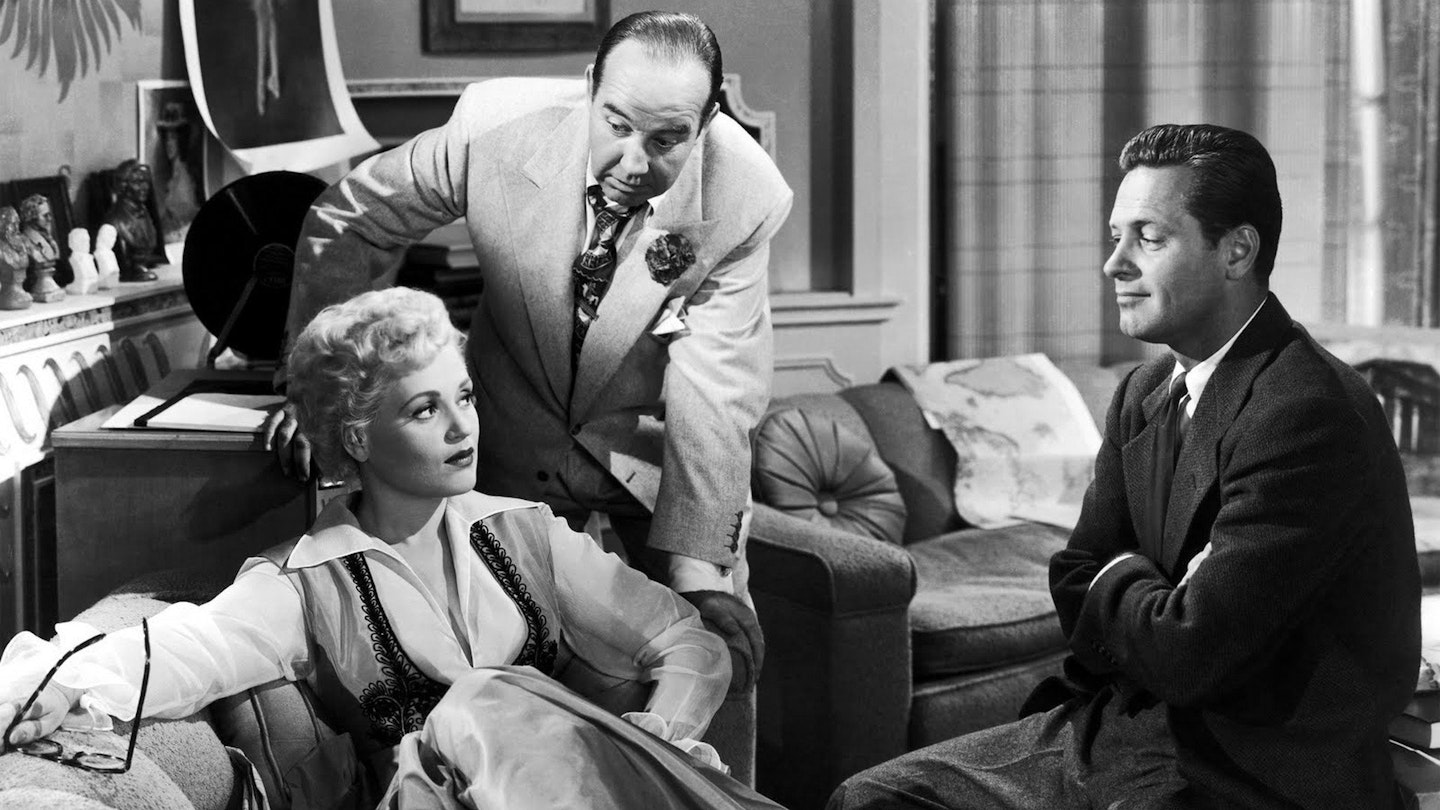George Cukor was renowned for his ability to coax career-best performances out of Hollywood's star actresses. Yet, he seems to have been overawed by the reputation that Judy Holliday forged in Garson Kanin's stage show, as he allows her to play Billie Dawn pretty much as she had on Broadway. Shooting in long takes to accommodate the debutant's familiarity with the role, Cukor permits her to retain many theatrical traits that seem too calculated for the screen. A little advice on playing to the camera rather than the circle might have made what is an already enchanting turn all the more accomplished.
Yet, Holliday very nearly didn't get to repeat her triumph at all, as Columbia boss Harry Cohn spent four years trying to find a bigger name to carry the movie version. He did succeed, however, in replacing Paul Douglas with Broderick Crawford, who was hot off the back of his Oscar victory for All The King's Men, and there's more than a little Willie Stark in his portrayal of Harry Brock, a seemingly buffoonish character who proves to have a resistibly ruthless streak.
This is essentially a Pygmalion story, in which a brassy ex-chorine is taught how to harness her intuitive smartness to America's founding principles. Thus, Billie is as much a Capra character as a screwball heroine and there's a subtle difference between her twisted logic and that of the dumb blondes later played by the likes of Marilyn Monroe.
But, unfortunately, the empowered Billie is nowhere near as interesting as the word-mangling innocent and the action loses much of its zip once she comes to realise that there's more to life than being a kept woman. That said, it's only when she falls in love with Paul that she begins to appreciate what he is teaching her. Thus, she merely replaces the influence of one dominant male with another rather than becoming fully emancipated.
